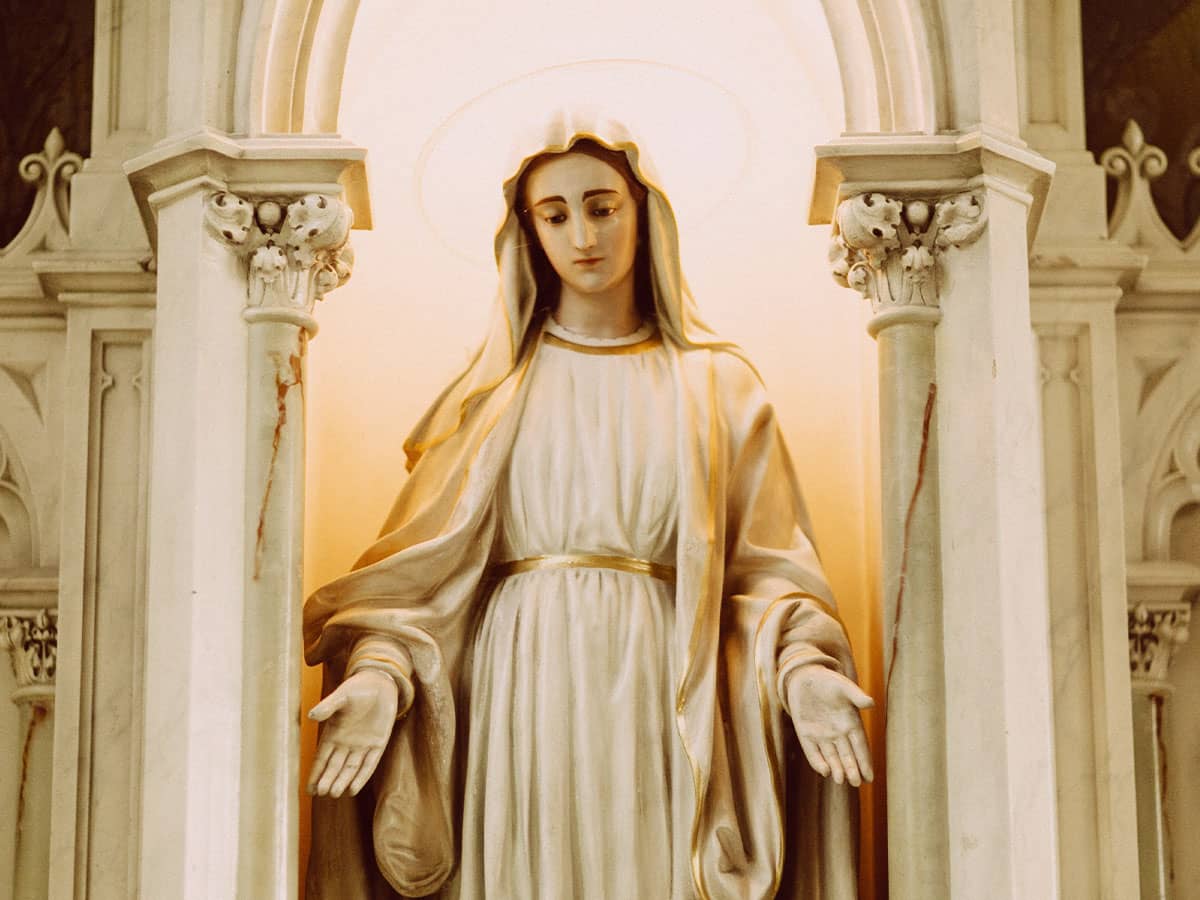As you may have noticed, it wasn't, and it didn't.
At the time, I commented that the Founder of our faith said that no one knew when the world would end. I don't think she heard me. Such folks never do. What chance does the Bible have against people who think they have a better pipeline to the Deity: secret, private revelation.
I thought of my old parishioner the other day when the text of the Third Secret was finally revealed some 40 years later at a recent solemn high press conference at the Vatican, complete with equally solemn high comments by Cardinal Joseph Ratzinger, the Red Baron of the Vatican. I'm sure that my old parishioner, if she's still with us, was disappointed to learn that the secret turned out not to prophesy the end times--as are many of the Fatima enthusiasts who confide to me via e-mail that the Vatican is still withholding part of the secret, the part that deals with the end of the world.
After a half-century or so of waiting, such folk find the actual contents of the Third Secret anti-climactic. It turned out to be not a prophecy of future events but a mystical vision, rich in metaphor and symbol, of the struggles of the church, struggles that have persisted in one form or other throughout its history.
But what good is a secret that doesn't give you a leg up on the future?
As Cardinal Ratzinger--hardly a liberal--made it clear at the press conference, Catholics in fact have no obligation to believe that anything miraculous happened at Fatima in 1917, when the Virgin Mary was said to have appeared to three shepherd children, or that the supposed "secrets" of Fatima are revelations from God. For those Fatima enthusiasts who have built their whole religious life around the 1917 phenomena, this is not good news. Why, they ask, doesn't the church have the courage to endorse Fatima completely with all the power it has at its disposal? Why is it so wishy-washy on the subject?
The answer is that the church has the Scriptures and its sacred tradition, and it thinks those are enough. If people want to believe in private revelations, and if such belief benefits their religious life, that's fine (unless, of course, they try to impose those private beliefs on others).
The Fatima enthusiasts, for whom the obscure and unexciting text of the Third Secret is not nearly good enough, remind me in a way of the Harry Potter enthusiasts who have been jamming bookstores to snatch "Goblet of Fire" as it rolls off the presses. Both groups--Fatima-maniacs and Potter-maniacs--delight in a world where mystery, wonder, romance, and magic are more readily available than they seem to be in our ordinary, workaday world. The only difference is that the fictional world of Harry Potter is more pleasant and reassuring than the grim world of the private revelations that have clustered around the mountains of France and Iberia and been taken up by Catholics everywhere with a taste for the grim.
In both worlds--Potter and Fatima--one can find secrets, inside information, more esoteric knowledge (and hence power) than others possess, and what purports to be a sure road map to the future. Both worlds have a moral clarity in which the triumph of good over evil is never in serious jeopardy. Unfortunately, such road maps probably do not exist in the messy, confused and confusing, complicated world in which we live when we're not reading and telling stories. The best the stories and the private revelations can do is to provide some illumination for our lives as we struggle through our daily griefs and setbacks. That is what the Third Secret of Fatima turned out to be in the end. To look for anything more--whether from Fatima or elsewhere--is to misunderstand the purpose of such visions and the religious heritage of which they purport to be a part.

